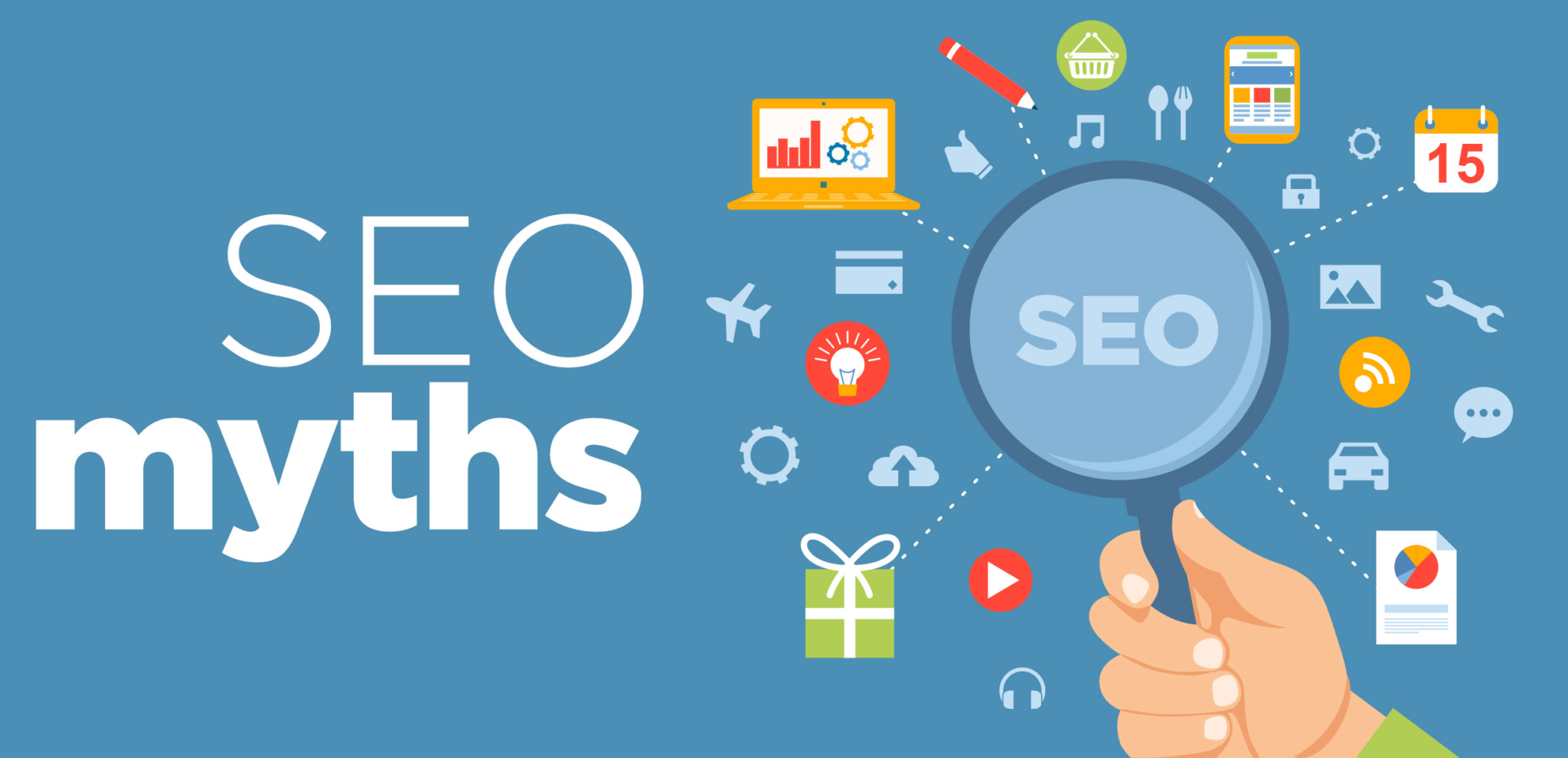Main SEO Myths busters - 10 tips to avoid troubles with SEO rankings

SEO mistakes that lead to the typical SEO myths
Every person or a specialist-beginner who faces SEO (aka search engine optimization) feels uncomfortable because of unknowing the main principles of this instrument. Nowadays, it’s hard indeed to be well-adapted for such a tremendous amount of the information and not to be mistaken with it.
Unwilling to learn more and explore the facts is the main reason why SEO myths were born.
It’s one of the most hot-topics in technical development and advertising. It includes more than just a simple inner code optimization and working with usability. It needs hard work with content and attractive articles. The more you do, the more you get - simple. But, like in other spheres, SEO mistakes also have their place to be.
The main reason why search engine optimization is hard to understand is Google’s algorithm changes that we can spectate every few months. And that misunderstanding leads to the SEO myths of the people.
The false knowledge spreads around the IT world and sets among the beginners and corporate sector and makes it harder to work with this instrument. Those who had a failure and were willing to stop their business because of the wrong perception and downhill, with anger blamed such a powerful tool like search engine optimization and sowed the wrong understanding in the heads of the people.
But enough of that polemic and philosophical talks. Let’s find out what typical SEO myths were born and help you to be prevented from repeating those SEO mistakes in your business.

Myths and truths of search engine optimization
And the first group of SEO myths is about once you start it, no more need to be worried about it.
No, that’s incorrect. You always need to follow the algorithm changes. This is not a one-time-work that will bring long-lasting results. There is a need to work and improve content and site.
For instance, mobile traffic grows up all around the world and Google points attention to well-adapted mobile sites. If there is an idea to ignore that, forget about that. You need to stay focused and be cautious about demands on all platforms.
The second group of SEO myths is about old content and unwilling to update it.
If you take a try to read the blogs that were published for about 5-7 years you’ll be surprised. Webmasters also update them. If your posts have good ranking and a lot of comments down below, that’s not saving from the risk of losing good traffic and down your rank.
Time is changing, and the world as well. News and information always change. So, you need to be aware of that and prevent your visitors from reading old and non-useful information.
The third group of SEO myths is about link building and links.
Well, that’s a typical wide-spread problem. People truly believe that filling the post with links, no matter what quality of those, will help them to grow up and increase the rank of the article in Google. And most specialists or simple businessmen don’t care about unnatural links or bad-rated links from doubtful resources. When Google detects a broken link, immediately penalizes it and blocks the chance of getting to the TOP. So, people must be cautious about that way of link building and always control the anchor-lists.
Now we’ll talk about the fourth group of SEO myths - adding unique tags and descriptions or adding it at all.
Here we have two different opinions of the people. One part is sure about there is no such need of adding titles and descriptions because copying the competitor’s ones will be enough. Another part assures that pasting a unique tag is so boring and ineffectual work because Google doesn’t care about uniqueness, the presence of that will be enough. And all of them are wrong. Tags must be unique, fresh, self-written, and according to Google’s demands about characters in length.
And we got closer to the fifth group of SEO myths - needless of social media.
Well, that’s another big mistake. Social media are crucial for SEO. Your page or entire site must be connected to your social accounts on Facebook, Instagram, LinkedIn, whatever. No doubt that social traffic is one of the most underrated and gradually growing every day. No excuses for you if you ignore that rule.
And here we go to the next 5 small myths, but not the less important
The sixth opinion - the content matters more. Yes, your texts are really needed. They help to promote your article and do good ranks on Google. However, without other instruments of SEO, content is nothing. Because SEO is a complex way of promotion. This is not about writing and posting. Bear in mind the need to manage all of the available methods and try to not separate then.
Seventh - there is no need to learn SEO tools and how to use them.
Wrong. If you are about to find out how it works and what profits those tools can give you, you must explore them. Also, they could help you to build your own strategy and give a clear understanding of what’s going on on your competitor’s sites.
Eights - all you need to do is to read a couple of instructions and learn about algorithms of Google and you can SEO every site.
And that’s not completely the truth. In addition to knowledge of technical specifics and rules of algorithms work, you also need to understand marketing, analytics, coding, copywriting, and UX-kits. If we talk about a good product and a well-done job, all of those mentioned earlier things are a must.
Ninth - there is no need to consider browser compatibility.
Maybe some group of IE haters will support this idea, but that’s not going to lead us to a good result. Your site must be friendly oriented to all of the known browsers and work right and clear on all. Neglecting to those simple pieces of advice will cause more troubles than it seems. Losing traffic is not a good idea if you seek good results.
And the last one - non-consistent content publishing.
No one talks about everyday routine and the need to do about 10 articles. All you need to do is to publish it cautiously, with cross-links and thematic oriented material to your audience. Only useful and necessary content.
